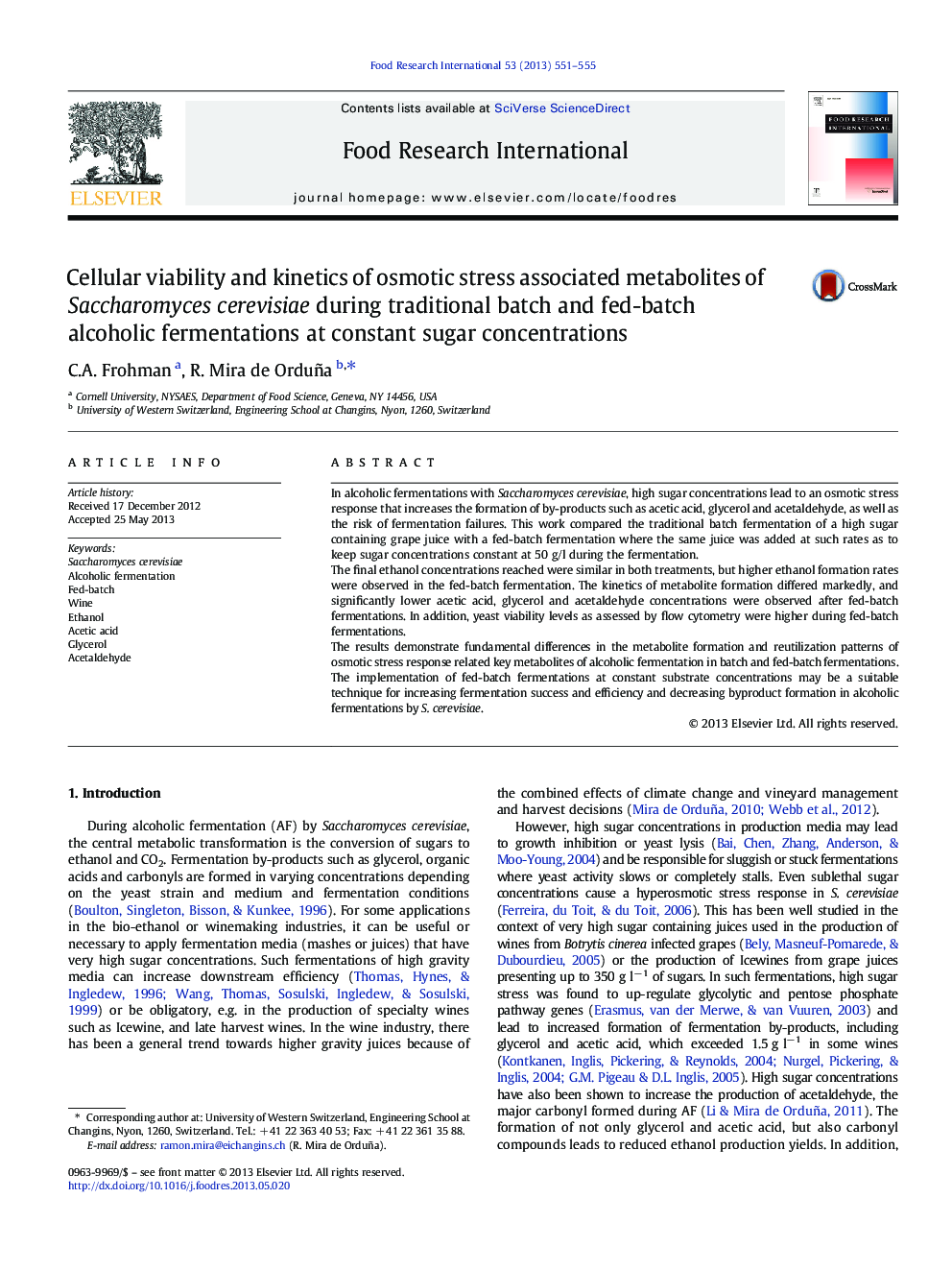| کد مقاله | کد نشریه | سال انتشار | مقاله انگلیسی | نسخه تمام متن |
|---|---|---|---|---|
| 6397827 | 1330677 | 2013 | 5 صفحه PDF | دانلود رایگان |

- Batch and fed-batch fermentations with yeast carried out in high gravity grape juice (343 g/l sugar).
- Sugar maintained at 50 g/l in fed-batch fermentations.
- Fed-batch fermentation leads to fundamental metabolic changes.
- Less acetic acid, glycerol and acetaldehyde formed in fed-batch fermentations of high gravity must.
- Ethanol production rate and yeast viability is higher with fed-batch approach.
In alcoholic fermentations with Saccharomyces cerevisiae, high sugar concentrations lead to an osmotic stress response that increases the formation of by-products such as acetic acid, glycerol and acetaldehyde, as well as the risk of fermentation failures. This work compared the traditional batch fermentation of a high sugar containing grape juice with a fed-batch fermentation where the same juice was added at such rates as to keep sugar concentrations constant at 50Â g/l during the fermentation.The final ethanol concentrations reached were similar in both treatments, but higher ethanol formation rates were observed in the fed-batch fermentation. The kinetics of metabolite formation differed markedly, and significantly lower acetic acid, glycerol and acetaldehyde concentrations were observed after fed-batch fermentations. In addition, yeast viability levels as assessed by flow cytometry were higher during fed-batch fermentations.The results demonstrate fundamental differences in the metabolite formation and reutilization patterns of osmotic stress response related key metabolites of alcoholic fermentation in batch and fed-batch fermentations. The implementation of fed-batch fermentations at constant substrate concentrations may be a suitable technique for increasing fermentation success and efficiency and decreasing byproduct formation in alcoholic fermentations by S. cerevisiae.
Journal: Food Research International - Volume 53, Issue 1, August 2013, Pages 551-555